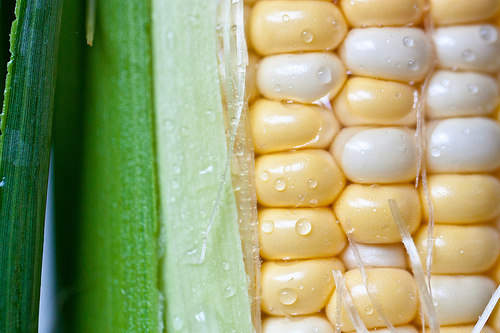
International Tribunal Demands GM Maize Ban in Mexico
MEXICO CITY—The Mexican Chapter of the Permanent Peoples' Tribunal has called on the Mexican government to ban the planting of genetically modified (GM) maize in the country. The decision cited the importance of maize as one of three principal staple crops globally, which millions depend on. The Tribunal, which considered evidence gathered over three years from over 1000 organizations on this and other issues, also highlighted the importance of Mexico as the centre of origin of maize globally.
December 11, 2014 | Source: etc Group | by Silvia Ribeiro and Verónica Villa
MEXICO CITY—The Mexican Chapter of the Permanent Peoples' Tribunal has called on the Mexican government to ban the planting of genetically modified (GM) maize in the country. The decision cited the importance of maize as one of three principal staple crops globally, which millions depend on. The Tribunal, which considered evidence gathered over three years from over 1000 organizations on this and other issues, also highlighted the importance of Mexico as the centre of origin of maize globally.
The Mexican government, the Tribunal ruled, must "adopt all necessary measures to ensure the conservation of peasant maize as the main food source and as a vital element of the social structure and cohesion." The final ruling noted "serious risks" of genetic contamination in "the centre of origin and diversity of this staple crop," which forms the "basis of the livelihood of the Peoples that created it for the good of all mankind." [1]
In the indictment that led to the ruling, social organizations spoke of GM crops as part of a "war" against food sovereignty. "The ultimate weapons against independent food production," the indictment read in part, "are genetically modified crops and the corporations that control them – genetic control, tied to legal frameworks of intellectual property." [2]
The Tribunal also recognized that the issue goes beyond Mexico's borders. The ruling calls on the UN Food and Agriculture Organization to defend native and peasant maize varieties against genetic pollution and assume responsibility for preventing the impacts of decisions which may be made in Mexico, but could have global implications. The ruling also recommends that the UN Convention on Biodiversity launch special research – with participation from peasants and indigenous peoples – on how to safeguard the genetic centre of origin of food crops and the rights of peasant and indigenous peoples who created them..
“Fighting transgenic corn is not only a national issue – it affects the very foundations of the world food security," said Verónica Villa of ETC Group in Mexico. "These communities and organizations will continue fighting the release of transgenic seeds; the Peoples' Tribunal has brought the problem to the international attention."
"The tribunal has made a clear decision," said Pat Mooney, Executive Director of ETC Group. "Unless the Mexican government responds decisively, the world could lose the genetic diversity of one of its most important crops; if Mexico doesn't act then the United Nations should."
Among the potential impacts of the release of transgenic maize noted in the Tribunal's ruling:
• Genetic contamination and erosion of native and peasant varieties and their genetic erosion
• Takeover of maize production by giant multinational corporations
• A direct attack on the culture and livelihoods of the majority of Mexicans
• Pesticides used with transgenic crops endangers bees, the environment, and livelihoods of Mayan peasants
Peasant groups and social organizations see the plantings as a direct assault on Mexican food sovereignty and security. The have raised concerns about the potential disappearance of maize varieties due to genetic contamination, and the disappearance of knowledge, languages, practices and biodiversity associated with the native maize varieties.
Recent years have seen the Mexican government take several steps toward allowing GM crops that have led to transgenic contamination. Governments authorized nearly 200 experiments and pilot projects involving GM maize between 2009 and 2012. In 2012, Monsanto, Mexican DuPont subsidiary PHI and Dow AgroSciences requested authorization to sow GM maize on a commercial scale. Due to strong national and international opposition, commercial planting has been prevented in what some call a "people's moratorium".
In October, 2013, a class action suit, brought by 53 individuals and 20 organizations and represented by Semillas de Vida and Colectivas AC, consolidated the ban. The release of transgenic corn has been suspended while the legal challenge is under review.
